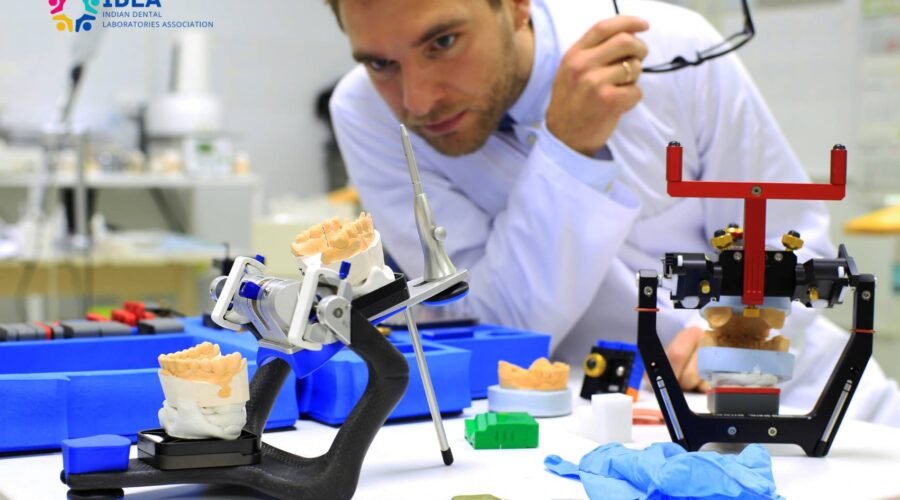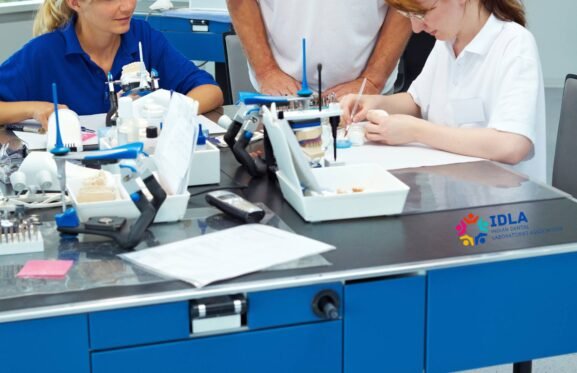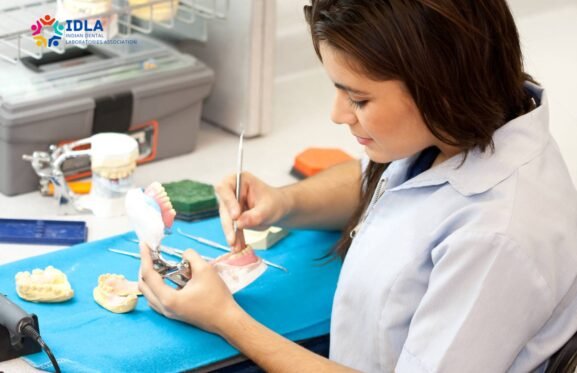The Role of Dental Laboratories in Improving Patient Care
Dental laboratories play a critical role in the broader dental care ecosystem, directly impacting patient outcomes through the creation of custom dental appliances and restorations. From crowns and bridges to dentures and orthodontic devices, the precision and quality of work produced by dental labs significantly influence the effectiveness of dental treatments. Here, we delve into the various ways dental laboratories contribute to improving patient care.
1. Customization and Precision
One of the primary responsibilities of dental laboratories is to fabricate dental prosthetics that fit perfectly and function optimally.
- Tailored Solutions: Dental labs use advanced technology and detailed patient data to create custom solutions tailored to each individual’s unique dental anatomy. This customization ensures better fit and comfort for the patient.
- High Accuracy: Utilizing tools such as CAD/CAM systems and 3D printing, dental labs can achieve a high level of precision in their work. Accurate fittings reduce the need for adjustments and remakes, leading to quicker treatment completion and greater patient satisfaction.
2. Enhanced Aesthetics
Aesthetics play a crucial role in patient satisfaction, especially for dental restorations that are visible when smiling or speaking.
- Natural Appearance: Dental technicians use high-quality materials and advanced techniques to mimic the natural look of teeth. This attention to detail helps patients feel more confident in their appearance.
- Personalized Shades and Shapes: By closely matching the color and shape of natural teeth, dental laboratories ensure that restorations blend seamlessly with a patient’s existing teeth, enhancing the overall aesthetic outcome.
3. Advanced Technology Integration
The adoption of cutting-edge technology in dental laboratories significantly enhances the quality and efficiency of dental care.
- Digital Impressions: Intraoral scanners provide highly accurate digital impressions, reducing the discomfort associated with traditional impression methods and improving the precision of the final product.
- 3D Printing: This technology allows for the rapid production of dental models and appliances with high precision. It also enables the creation of complex structures that would be difficult or impossible to achieve with traditional methods.
- Milling Machines: Advanced milling machines create durable and precisely crafted restorations, ensuring long-lasting results for patients.
4. Collaboration with Dental Professionals
Effective communication and collaboration between dental laboratories and dental practitioners are vital for ensuring optimal patient outcomes.
- Seamless Communication: Digital platforms and software facilitate better communication between dentists and lab technicians, ensuring that all patient-specific requirements are clearly understood and met.
- Feedback Loop: Continuous feedback between the lab and the dentist helps in fine-tuning the final product, addressing any issues promptly, and ensuring the best possible fit and function.
5. Timely Delivery
Efficient production processes in dental laboratories contribute to faster turnaround times for dental restorations.
- Reduced Waiting Time: Streamlined workflows and advanced production technologies enable dental labs to produce high-quality restorations quickly, reducing the waiting time for patients.
- Quick Adjustments: When adjustments or repairs are needed, efficient processes ensure these can be handled swiftly, minimizing patient discomfort and inconvenience.
6. Quality Assurance
Dental laboratories adhere to strict quality control measures to ensure the highest standards of dental restorations.
- Rigorous Testing: Each product undergoes rigorous testing and inspection to ensure it meets the required standards of fit, function, and aesthetics.
- Certification and Compliance: Many dental labs seek certifications and comply with industry standards to guarantee the quality and safety of their products.
7. Patient Education and Support
Dental laboratories also play a role in educating patients about the care and maintenance of their dental prosthetics.
- Maintenance Guidance: Providing detailed instructions on how to care for dental restorations helps patients maintain their appliances in good condition, prolonging their lifespan and effectiveness.
- Educational Materials: Labs often supply educational materials that help patients understand the importance of their dental devices and how to use them correctly.



